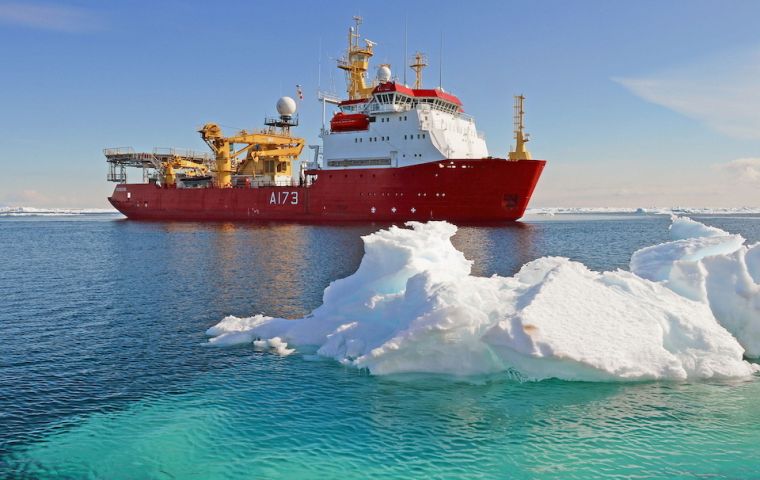MercoPress. South Atlantic News Agency
During January, HMS Protector will help witha a research on increased tourism and pollution
 IAATO recorded 105,331 people visited Antarctica during the 2022-23 tourism season – travelling on one of 50 ships a day. And this trend is expected to grow
IAATO recorded 105,331 people visited Antarctica during the 2022-23 tourism season – travelling on one of 50 ships a day. And this trend is expected to grow The consequences of increased tourism and pollution in Antarctica, are two of the tasks the Royal Navy Ice Patrol HMS Protector will be checking during this month in the frozen continent. For this purpose it has invited two scientists from the University of Portsmouth, Professor Fay Couceiro and Dr. Clare Boston.
According to IAATO, the International Association of Antarctica Tour Operators, a record 105,331 people visited Antarctica during the 2022-23 tourism season – travelling on one of 50 ships a day. And this trend is expected to grow.
Professor Couceiro will be specifically looking at how the marine population is being affected by cruise ships on the west coast of the Antarctic Peninsula. “There has been a steady increase in cruise ship tourism and certain bays on the Antarctic Peninsula are now regularly visited by cruise ships.
“We need to understand more about how this trend is affecting this beautiful but fragile ecosystem. I will be looking for concentrations of heavy metals, microplastics and antimicrobial resistance genes to determine if there are differences between the sites and if any pollution found is linked to the increased tourism.”
Dr. Clare Boston will be undertaking bathymetric surveys of the sea floor. HMS Protector’s multi-beam sonar will be used to analyze previously undocumented glacier bays to map the landforms.
These landforms can show glacier recession and other information on recent changes. Dr Boston is hoping to sample glacially-deposited rocks on land for surface exposure dating – which will give an indication of when the land was last covered by glacier ice.
”The effects of climate change are a major concern in the region,” she said. “The Antarctic Peninsula has witnessed some of the most rapid warming on earth in the last 70 years.
“Better understanding of both recent glacier change and longer-term dynamics of ice sheet recession is important for improving predictions of how glaciers on the Antarctic Peninsula will respond to future climate change.”




Top Comments
Disclaimer & comment rulesCommenting for this story is now closed.
If you have a Facebook account, become a fan and comment on our Facebook Page!